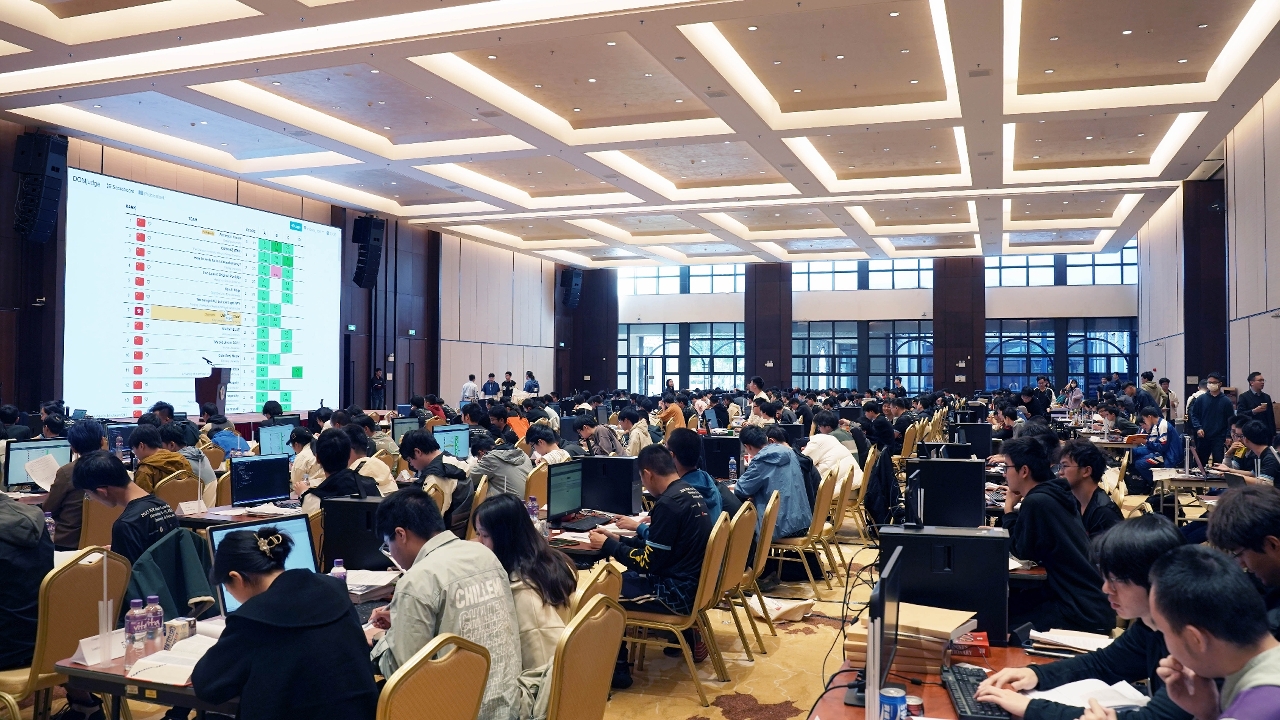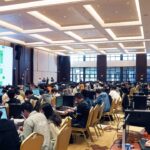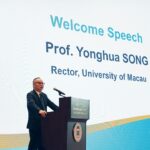 The International Collegiate Programming Contest
The International Collegiate Programming Contest
The Faculty of Science and Technology of the University of Macau (UM) recently held the 2023 International Collegiate Programming Contest (ICPC) (Asia Macau Regional Contest), with the aim of promoting exchange of programming skills, and enhancing students’ interest in computer programming. The regional contest in Macao drew the participation of 82 teams from 67 renowned universities and from 8 secondary schools in China. Approximately 300 students and teachers gathered at UM to compete for the regional championship and exchange ideas on programming skills.
Yonghua Song, rector of UM, expressed his delight in seeing participants from various renowned universities gather at UM. He emphasised that UM has always attached importance to cultivating students’ innovation, teamwork spirit, and analytical problem-solving skills. The contest provided an important learning platform for outstanding students from around the world, allowing them to challenge themselves in a real programming environment and showcase their excellent programming skills. In addition, the contest provided an opportunity for participants to demonstrate their innovation and excellence in computer science, and to achieve even greater accomplishments.
The participating teams came from various universities, including Peking University, Renmin University of China, University of Science and Technology of China, Shanghai Jiao Tong University, Tongji University, Zhejiang University, Harbin Institute of Technology, Southern University of Science and Technology, Wuhan University, the University of Hong Kong, the Chinese University of Hong Kong, City University of Hong Kong, the Hong Kong Polytechnic University, and the Hong Kong University of Science and Technology. Eight secondary schools from Hong Kong and Macao were also represented. After intense competition, the Peking University team won the championship, with Zhejiang University and the Chinese University of Hong Kong, Shenzhen, securing the first runner-up and second runner-up positions, respectively. UM also achieved a historic milestone by winning a bronze award for the first time in the contest. In addition, as an observation team in the senior secondary student category, the performance of Macao secondary students demonstrated an award-winning level, indicating that their computer programming skills have reached an international standard.
According to the rules of the contest, each participating team consisted of up to three students, who were tasked with solving 11 to 12 practical programming problems within a five-hour time limit. Each team was provided with one computer for their use. Members of each team had to collaborate and work against the clock, performing mathematical analysis, designing data structures and algorithms, and writing code to solve the given problems. After solving each problem, the teams were required to submit their solutions through an online evaluation system for real-time assessment. The team that solved the highest number of problems in the fewest attempts in the least cumulative time would be declared the regional winner and advance to the world finals.
Launched in 1970, the ICPC is an algorithmic programming contest that aims to foster students’ creativity, teamwork, as well as ability to write code and solve problems under pressure. Over the years, the ICPC has drawn the participation of more than 50,000 students from over 3,000 universities around the world, making it the most influential programming contest for college students. UM has hosted the Macao local contest of the ICPC for three consecutive years, which has contributed to the popularisation of computer education, and stimulating students’ interest and passion for computer science. Through organising the contest, UM demonstrates its commitment to nurturing future talent in programming and artificial intelligence for Macao, the Guangdong-Hong Kong-Macao Greater Bay Area, and the country as a whole.




